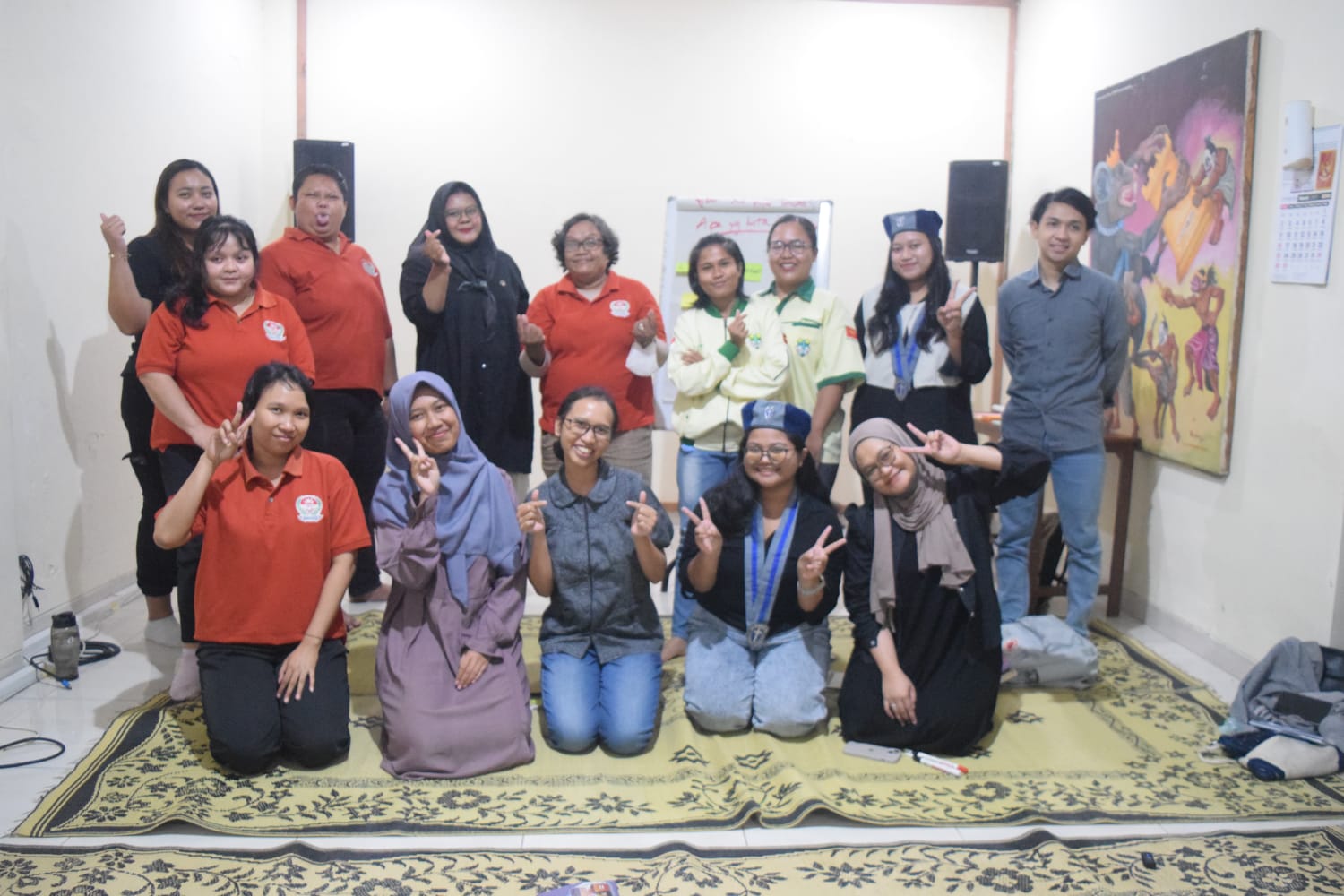It started with redefining the word “Youth” and what was the actual state of existence amongst young people. A researcher and volunteer for Schizophrenia-Aware Community in Indonesia in Solo Raya, Ika Hana Pertiwi talked about her experience when she joined the youth group in her village, and pointed out that to be a young person meant to be going through a process of becoming an adult.
Ika Hana said that youth were exploring the “point of comfort” where there would be many adventures. They were in transition between childhood and young adult, hence the flexibility of being youth in the process of being a mature adult. They were exploring in an adventure towards adulthood – a point where they could solve problems on their own. Just like gender, social construction also built youth. Different generations and lifestyles in social construction and the impacts of parenting built youth. One important thing to emphasise from the young people was that they were not alive just to become old. This prompted a question “what did young people face? What brought these young people to life and to enjoy the process of living?
There were inccreasing cases of online gender-based violence, lack of knowledge about gender equality and sexual and reproductive health rights, sexual violence in education environment, domestic violence experienced by children, discrimination against Lesbian, Gay, Bisexual, and Transgender, Queer People (LGBTQ), lack of job opportunities, lack of safe spaces and public facilities, women involvement only as formality, stigma as rebels, imposition, toxic possitivity, victim-blaming culture, social control on number of children in a household, suicide attempt, change in role and ability between men and women, increasing bullying, patriarchy, mental health issues in youth, women roles in three spheres – (kitchen, wells, and bed), belief that women cannot lead, and toxic relationship. Youth also faced multiple issues as displayed by around 20 young people on the butcher paper displayed at Anawim Room Yayasan YAPHI, on Tuesday, 18/3. They came for the discussion and critical study to celebrate International Women’s Day.
The event involved a resource person and facilitator - Ika Hana Pertiwi – and feminist and activist - Luxy Nabela Farez, founder of Solo Women’s Study (PUKAPS). The event aimed to re-identify problems and potentials in youth, such as: creative skills, uniqueness, organisation, access to information and technology, education opportunities, networking, city living with easy access, communities or spaces, social media skill, organising, supports and colleagues, proposal writing for donors/funding, gen Z being open to mental health, opportunities and health, and self-confidence, will to learn, spirituality and religiosity, active in social media, good listening, self-awareness, choices, and opportunities for education.
There is however something to underline here, particularly in the City of Surakarta and its surrounding areas, that the mapping pointed to common need – healthy relations and concerns about access to health insurance. People thought that the latter did not provide enough focus on psychological health, due to lack of professionals (i.e. psychologists and psychiatrists) at community health centres in Surakarta. What then would be the solution(s) for young people?
Hana then suggested that the key component was support system, and that started with self-love, but also space for other people, listening without judging by validating emotion, and becoming a friend. Youth were expected to play a role for themselves and for others, simply by listening to stories and not comparing problems. We Listen We Do Not Judge applied not only in social media, but also issues in their environment/surrounding. A number of urgent needs included peer training, capacity building, mental health training, networking with a diversity of organisations, public speaking training, health relations, fundraising, gender, sexual and reproductive health rights training, proposal writing training, protection of human rights defenders, and financial management. (Renny Talitha/Ast)












